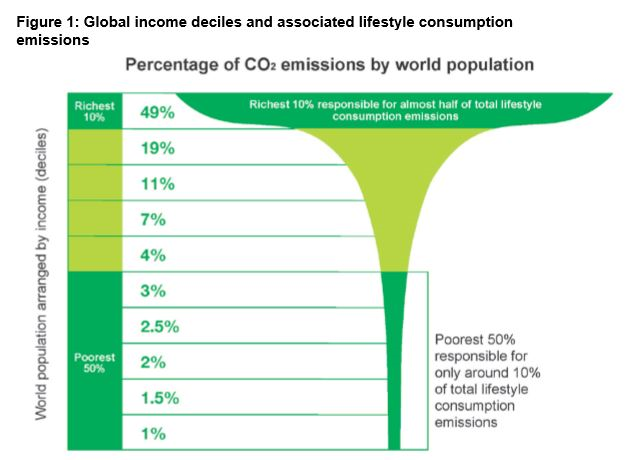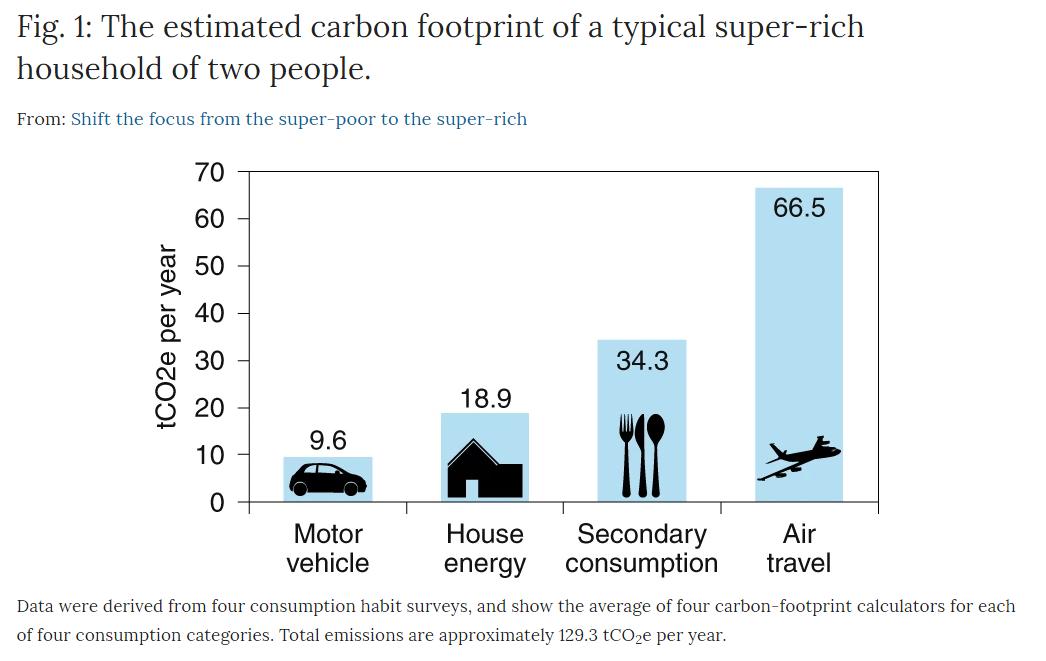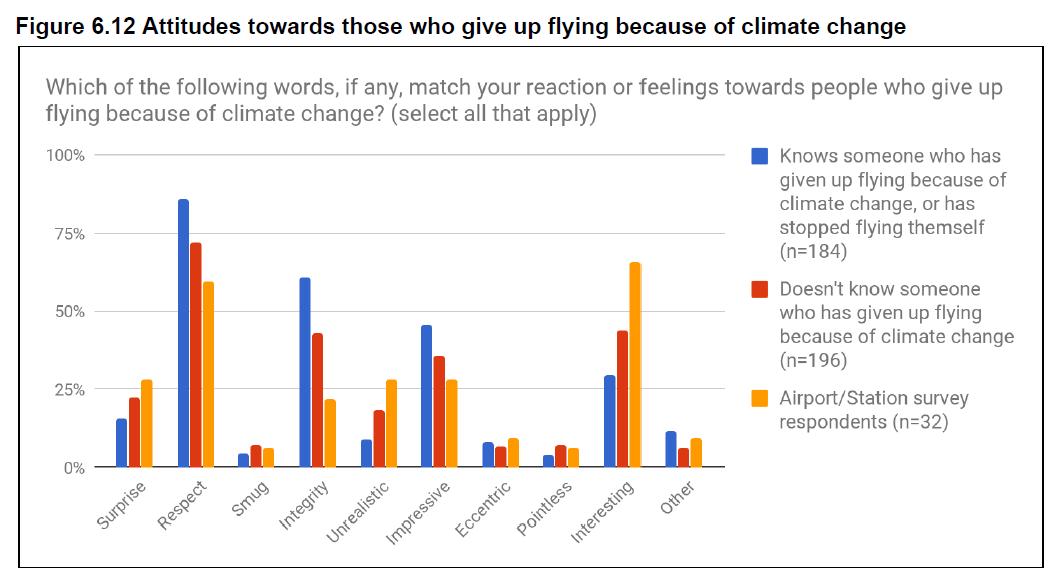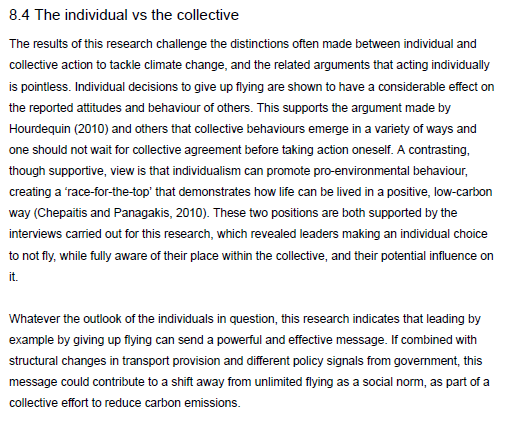
The pushback on @Shell's "blame-the-consumer" tweet has been brilliant and represents real progress. Long may it continue.
But...
...we do still need to talk about consumers and carbon footprints, and not give the highest emitters a free pass.
Thread
But...
...we do still need to talk about consumers and carbon footprints, and not give the highest emitters a free pass.
Thread
https://twitter.com/Shell/status/1323184318735360001?s=20
Because “consumers” are not some horizontal mass of equal beings. The disparities between the biggest and the smallest carbon footprints are absolutely vast.
The Martini glass of inequity highlights this well...
2/
The Martini glass of inequity highlights this well...
2/

The biggest consumers really are a problem for climate change. Not only do they (or we) make an oversize contribution to emissions, they also set the agenda, steer social norms, and influence what climate mitigation options are deemed acceptable. 3/ nature.com/articles/s4155…
It is also in the interests of high-emitters to keep the focus away from individual responsibility. So, the completely warranted push-back on @Shell’s diversionary tactics suits the high-emitters just fine. They are sleeping a bit easier in their First Class cabins right now. 4/
What we need is a *precise* focus on individual emissions.
Not a blanket “blame-the-consumer” campaign, but a “focus on the biggest consumers first” campaign. Shine the light upwards.
5/
Not a blanket “blame-the-consumer” campaign, but a “focus on the biggest consumers first” campaign. Shine the light upwards.
5/
Let’s remember that every ton of CO2 we put into the atmosphere *right now* contributes to climate change for centuries or millennia. While decarbonising the coming decades is crucial, now is when it matters most, and there is a vast potential for demand reduction now.
6/
6/
There is also a social effect to all this.
So far the thread has been about individuals. But nobody is an island - our actions influence others. When someone visibly reduces their consumption because of climate change, people notice, social norms move 7/
theconversation.com/climate-change…
So far the thread has been about individuals. But nobody is an island - our actions influence others. When someone visibly reduces their consumption because of climate change, people notice, social norms move 7/
theconversation.com/climate-change…
This is especially the case when the action is perceived to be hard - a "credibility enhancing display".
It’s not a case of demonising high emitters, but rather showing that their actions are important, for emissions and the direction of society.
8/ sciencedirect.com/science/articl…
It’s not a case of demonising high emitters, but rather showing that their actions are important, for emissions and the direction of society.
8/ sciencedirect.com/science/articl…
If high-influence high-emitters begin to visibly reduce their carbon footprints, highlighting the moral dimensions to consumption and climate change, the effects could be enormous – contributing to social tipping points. 9/
pnas.org/lookup/doi/10.…
pnas.org/lookup/doi/10.…
This all points to the fact that individual change IS system change, as social scientists often tell us...
10/
climateoutreach.org/system-change-…
10/
climateoutreach.org/system-change-…
Also, if politicians, CEOs, celebrities act out their commitment to climate change by significantly reducing their personal emissions, they are likely to become more committed to climate mitigation due to the psychological processes involved in aligning actions and beliefs.
11/
11/
Psychologically, we aim for consistency. We believe what do. We do what we believe.
12/
12/
So yes, let’s give @Shell and its planet-wrecking mega-denial chums as hard a time as possible, especially when they gaslight us.
But let’s not give consumers with big carbon footprints (which may be us) a free pass. Equity is at the heart of the Paris Agreement after all.
13.
But let’s not give consumers with big carbon footprints (which may be us) a free pass. Equity is at the heart of the Paris Agreement after all.
13.
• • •
Missing some Tweet in this thread? You can try to
force a refresh






